
Upgrade your business security with smart cameras featuring motion alerts, night vision, and secure storage. Easily access your commercial video feed with Reolink camera systems for business and keep an eye on your business anytime, from anywhere!
Series/Type
Scenarios
Power Options
Network connection
Resolution
Storage
Lens
Night Vision
Light
Weatherproof
Channels
Color
Compatibility
Special Features
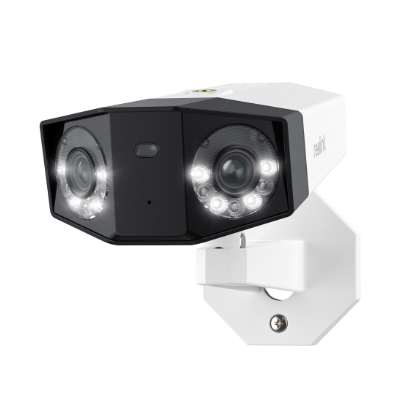
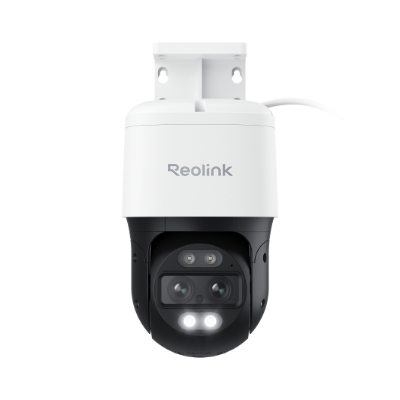
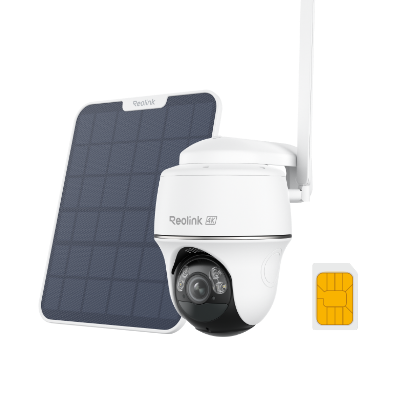
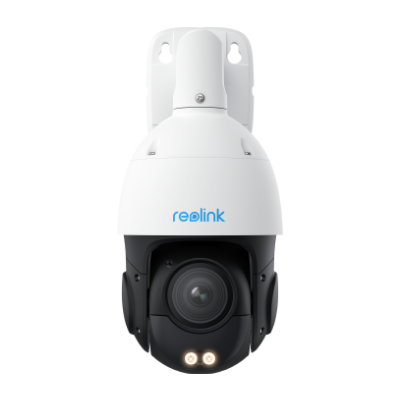
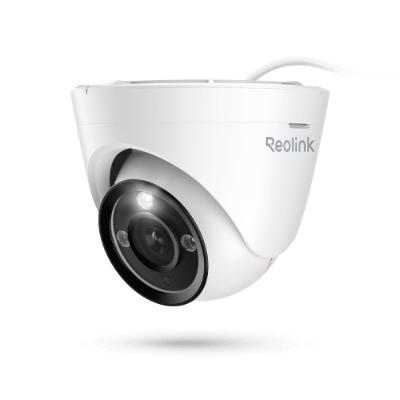
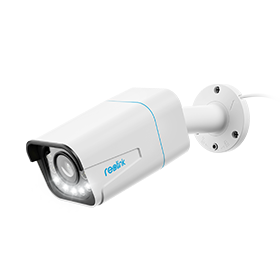
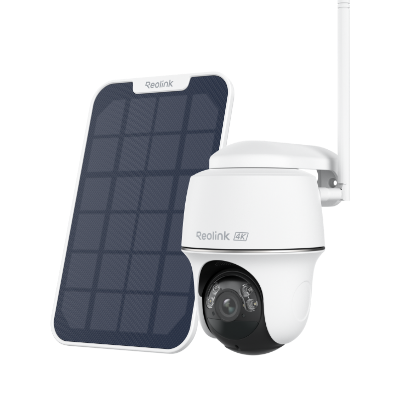
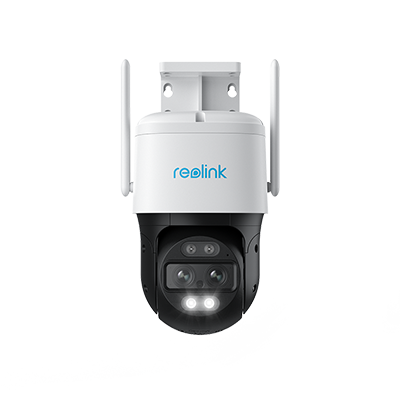
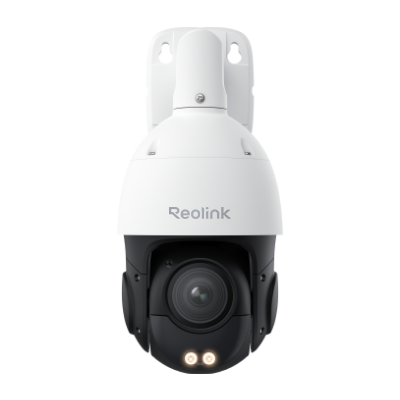
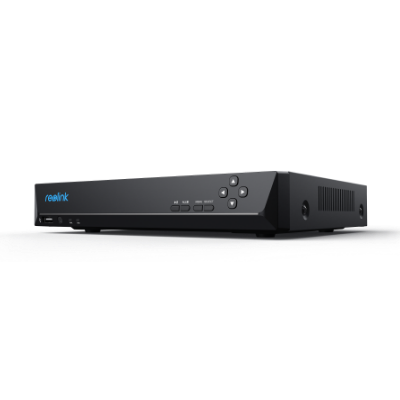
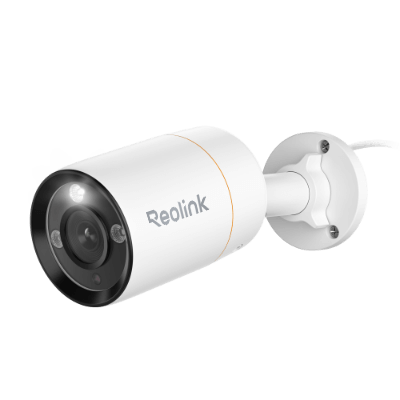
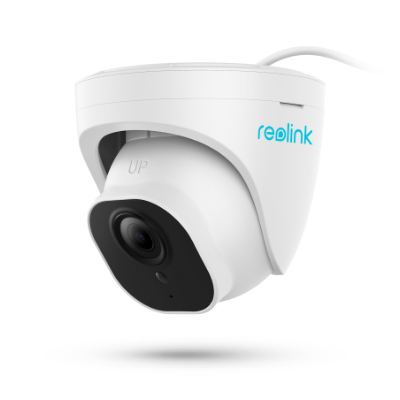
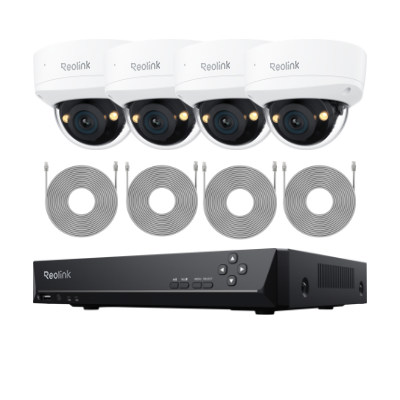
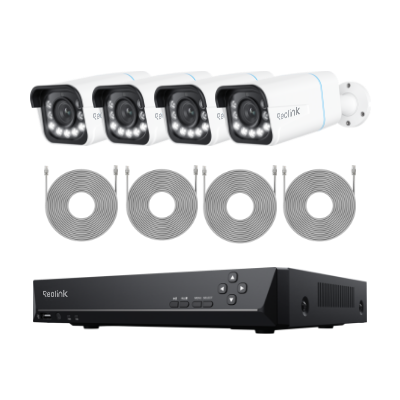
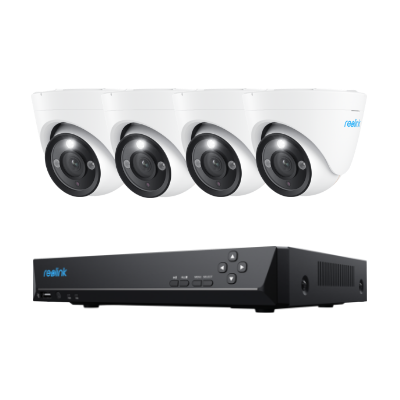
- Deter theft and vandalism: Visible lenses tell would‑be thieves that every move gets recorded.
- Cut shrinkage: Cameras discourage employee pilferage and document customer walk‑outs.
- Speed police response: Clear video and real‑time alerts help officers act on solid evidence.
- Lower insurance premiums: Many insurers give discounts when a security camera for business is in place.
- Boost productivity and safety: Managers spot hazards—spills, blocked exits—before accidents happen.
- Provide operational insights: Footage shows busy hours, traffic flow, and service gaps so you can improve layouts and staffing.
Today's market offers three core choices of security camera for business. Before diving in, remember that each security camera for the business category fits different budgets and building layouts.
Wireless security cameras for business: Wireless models connect over Wi‑Fi and draw power from batteries or a nearby outlet. They install fast—no drilling for Ethernet runs—and move easily when your business size changes. Leading brands now stream up to 4K video and use AI to flag people, cars, or packages, cutting false alerts. Battery life averages three to six months, and solar panels can extend it further.
Wired security cameras for business: Wired units usually send data and often power through Ethernet (PoE) or coax to a recorder. They shine in large business spaces that need nonstop uptime—think restaurants, clinics, and stores. A hard‑wired link ensures smooth 24/7 recording with no wireless drop‑outs. The installation time and cost run higher because you'll route cables and perhaps hire a pro, yet the result is rock‑solid reliability and unlimited local storage.
Business security camera systems: A full security camera system for business bundles multiple wired or wireless cameras with a network video recorder (NVR) plus a central management app. Going with a system simplifies scaling: add lenses, access‑control panels, or AI analytics as your business grows.
Picking the best security cameras for business means balancing picture quality, smart features, and long‑term cost. Weigh the following six factors first.
High‑resolution video: Don't settle for grainy footage. Look for 2K at minimum; 4K captures faces and license plates even when you zoom in. Higher resolution also lets you cover more floor space with fewer cameras.
Night vision: Burglars love the dark, so your lenses must see after hours. Infrared LEDs reach 30m or more, and some cameras now switch to full‑color night mode under streetlights for sharper detail.
Motion detection & AI‑powered alerts: Smart analytics cut the noise. Newer models tag humans and vehicles instead of every moving leaf, so your phone pings only when real risk appears. Look for adjustable zones so false alarms from a busy sidewalk stay muted.
Cloud storage vs. local storage: Cloud saves clips off‑site, and it is great if thieves grab the recorder, but it comes with monthly fees. Local NVRs avoid subscriptions and offer higher bit rates, yet need secure placement on‑premises.
Remote access via mobile apps: Make sure the vendor's app streams live video, sends instant alerts, and lets you share links with police or insurers. Good apps also support two‑way talk, handy for greeting deliveries at the back door or warning trespassers.
Central management: As you add sites, a strong video management system (VMS) pulls every feed into one dashboard. Enterprise platforms integrate with access control and produce audit reports that are key for regulatory compliance.
Reliable picks include Reolink battery series for wire‑free 4K quality, and PoE cameras and kits when you need local 24/7 recording. Your "best" choice depends on power sources, coverage area, and whether you prefer cloud or on‑site storage.
Expect $60–$300 for a single lens, depending on resolution and AI features. A four‑camera PoE kit with an NVR ranges from $400–$900. Add $10–$30 per month per location if you want cloud storage or professional monitoring.
Yes. In many regions, cameras count as capital equipment, so you can deduct the purchase or depreciate it over several years. In the U.S., Section 179 lets small firms expense the full amount in the year of purchase. Always confirm details with your tax adviser.
You may record video in public work areas, but audio laws vary. U.S. federal wiretap rules and many state statutes require at least one‑party consent; others mandate signs or total bans. Post clear notices and disable mics where conversations could be private unless every party agrees.